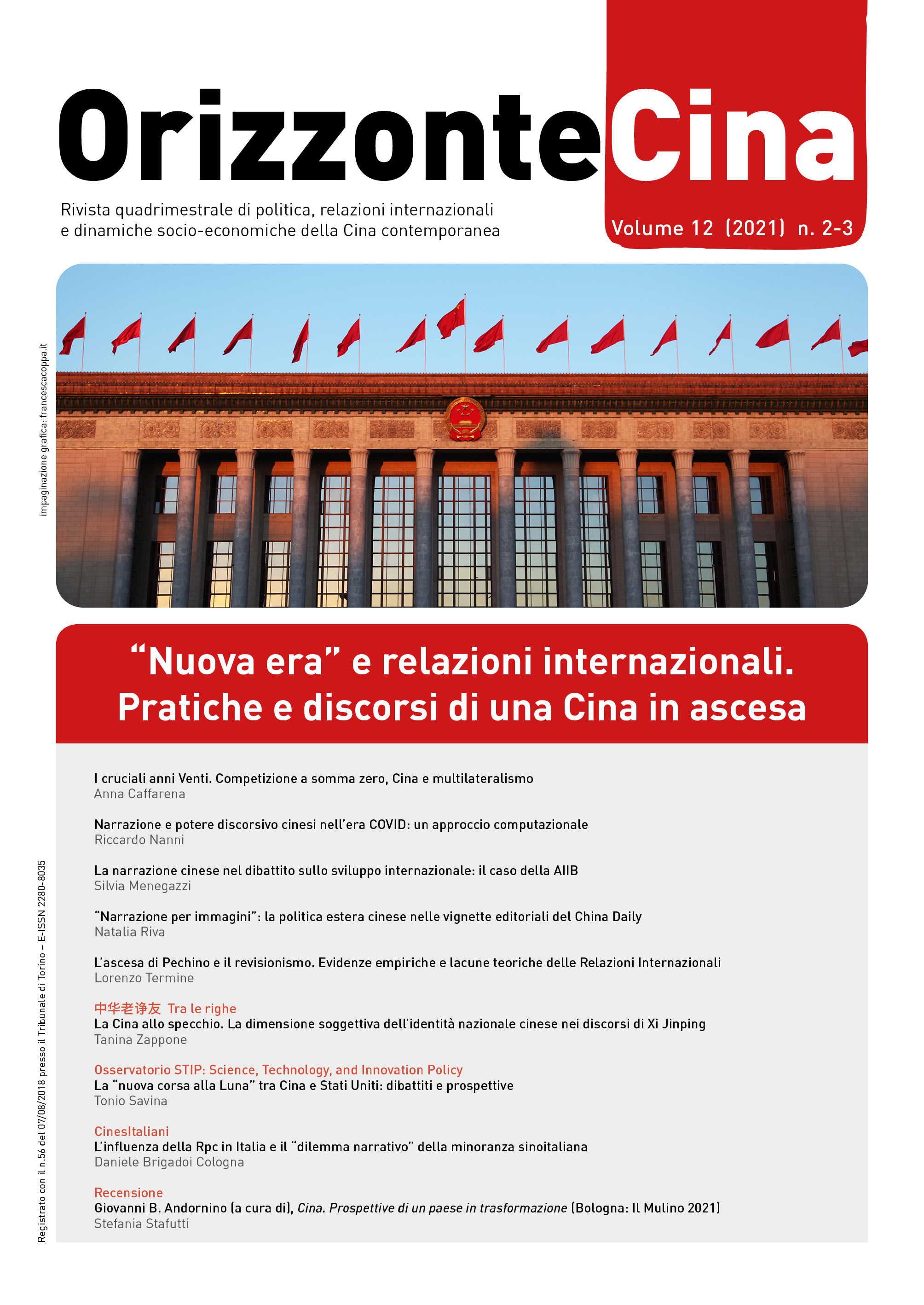China in the mirror
The subjective dimension of Chinese national identity in Xi Jinping's speeches
DOI:
https://doi.org/10.13135/2280-8035/6636Abstract
中华老诤友 | Between the Lines
This study proposes a mixed-methods approach, combining quantitative Corpus Linguistics and qualitative content analysis, to investigate China’s role conception. In particular, the survey aims to investigate how China’s identity is developed in terms of self-definition in copular sentences, by conducting a diachronic analysis of a corpus of about 300 speeches, addressing both foreign and domestic audiences, held between 2013 and 2021 by Chinese current leader, Xi Jinping. The findings reveal that, while in international contexts Xi avoids explicitly defining the country as a power in copular sentences, in domestic contexts he tends to describe China as strong in order to respond to the needs of legitimation of the Party. Xi expresses a polyhedric and sometimes incongruous identity for the country, which suggests not so much a shift, as a coexistence of contradictory role conceptions for the nation.


